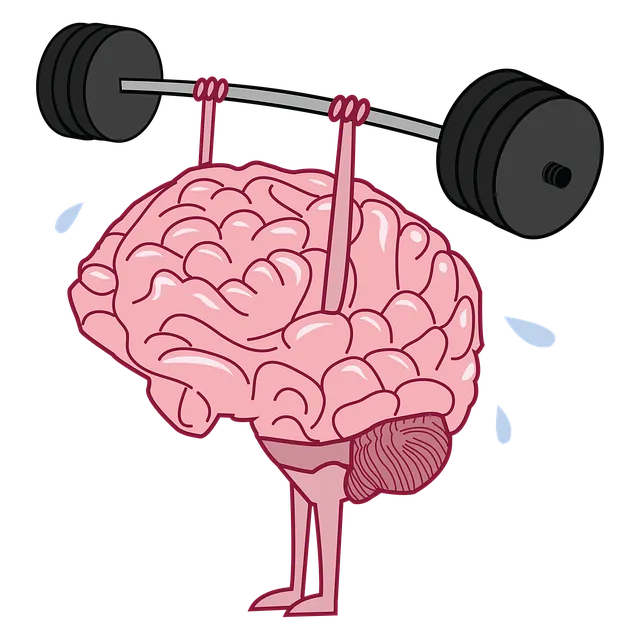Kaiser Permanente mental health Boulder offers specialized trauma-informed care, addressing the multifaceted effects of trauma on patients' lives through evidence-based practices and holistic approaches. By combining individual therapy, group sessions, community outreach, structured interviews, trauma-focused cognitive behavioral therapy (TF-CBT), active listening, empathy, mindfulness meditation, and stress management techniques, they empower survivors to navigate their traumatic experiences, heal emotionally, and develop healthy coping mechanisms for lasting mental well-being. Their strong therapeutic alliance, emphasis on self-awareness and resilience, and trigger-free environments foster trust, open communication, and recovery in a safe, non-judgmental environment.
Trauma support services are vital in addressing the profound impact of traumatic events on individuals and communities. This article delves into the critical role these services play in healing and recovery. We explore the foundations of understanding trauma, highlighting the innovative approaches at Kaiser Permanente Mental Health Boulder, a leading provider of trauma-informed care. Additionally, we provide practical strategies and assessment tools for service providers to offer effective support, emphasizing empathy, safety, and healing.
- Understanding Trauma and Its Impact: A Foundation for Support Services
- Kaiser Permanente Mental Health Boulder: A Hub for Trauma-Informed Care
- Evaluating and Assessing Trauma: Tools and Techniques for Service Providers
- Effective Trauma Support Strategies: Empathy, Safety, and Healing in Action
Understanding Trauma and Its Impact: A Foundation for Support Services

Understanding trauma is a foundational step in establishing effective support services. Trauma, whether acute or chronic, can significantly impact an individual’s mental health and overall well-being. The effects of trauma are multifaceted, often leading to emotional distress, cognitive impairments, and even physical symptoms. For instance, those seeking care at Kaiser Permanente mental health Boulder may present with a range of issues, from anxiety and depression to sleep disturbances and chronic pain.
This complexity necessitates a nuanced approach when providing support. The Mind Over Matter principles emphasize the power of self-awareness and resilience in trauma recovery. By incorporating exercises that foster self-esteem improvement and self-awareness, support services can empower individuals to navigate their traumatic experiences. Such interventions not only help in processing emotions but also enable people to develop coping mechanisms, leading to long-lasting positive outcomes.
Kaiser Permanente Mental Health Boulder: A Hub for Trauma-Informed Care

Kaiser Permanente Mental Health Boulder stands as a beacon of hope for individuals navigating trauma, offering a hub for trauma-informed care that transcends traditional mental health services. This facility prioritizes understanding and addressing the profound impact of trauma on an individual’s life, encompassing physical, emotional, and psychological dimensions. By integrating evidence-based practices and Mental Health Policy Analysis and Advocacy, Kaiser Permanente Mental Health Boulder ensures that every patient receives comprehensive support tailored to their unique needs.
The center’s approach emphasizes Crisis Intervention Guidance and Empathy Building Strategies. Trained professionals foster a safe, non-judgmental space where individuals can begin their journey towards healing. Through individual therapy, group support sessions, and community outreach programs, the center empowers survivors to reclaim their lives, fostering resilience and promoting long-term mental well-being.
Evaluating and Assessing Trauma: Tools and Techniques for Service Providers

Evaluating and assessing trauma is a critical component of providing effective support for individuals who have experienced traumatic events. Service providers at Kaiser Permanente mental health Boulder utilize various tools and techniques to ensure accurate diagnosis and tailored treatment plans. These methods include structured interviews, standardized questionnaires, and qualitative assessments that help uncover the nuances of each client’s experience. By employing evidence-based practices, such as trauma-focused cognitive behavioral therapy (TF-CBT), providers facilitate emotional healing processes, enabling individuals to process and overcome their traumatic memories.
In addition to these formal assessments, service providers emphasize the importance of building a strong therapeutic alliance. Active listening, empathy, and non-judgmental attitudes foster an environment where clients feel safe to share their stories and express their emotions freely. This personalized approach, combined with evidence-backed interventions like stress management techniques and confidence-boosting activities, ensures that each individual receives comprehensive support tailored to their unique needs and experiences.
Effective Trauma Support Strategies: Empathy, Safety, and Healing in Action

Effective trauma support strategies are essential for helping individuals navigate the healing process, especially in a community like Boulder where mental health awareness is increasingly prioritized. Organizations such as Kaiser Permanente play a crucial role in providing comprehensive services tailored to meet the unique needs of trauma survivors. One of the cornerstone approaches is cultivating empathy, enabling support staff to understand and validate the experiences of those affected. This fosters trust and creates a safe space for open communication, which is vital for recovery.
Additionally, ensuring physical and emotional safety is an active component of trauma support. This involves creating environments free from triggers and implementing practices like mindfulness meditation to aid in anxiety relief. By incorporating these strategies, Kaiser Permanente mental health services in Boulder strive to offer effective interventions that promote healing and empower individuals on their journey towards resilience.
Trauma support services are vital components of modern healthcare, especially with organizations like Kaiser Permanente Mental Health Boulder leading the way in trauma-informed care. By understanding the impact of trauma and employing effective strategies such as empathy, safety, and healing techniques, service providers can significantly enhance patient outcomes. Evaluating and assessing trauma using appropriate tools ensures personalized support tailored to individual needs. This comprehensive approach, highlighted by case studies like Kaiser Permanente’s initiatives, underscores the importance of trauma-focused care in creating a more compassionate and resilient healthcare landscape.






